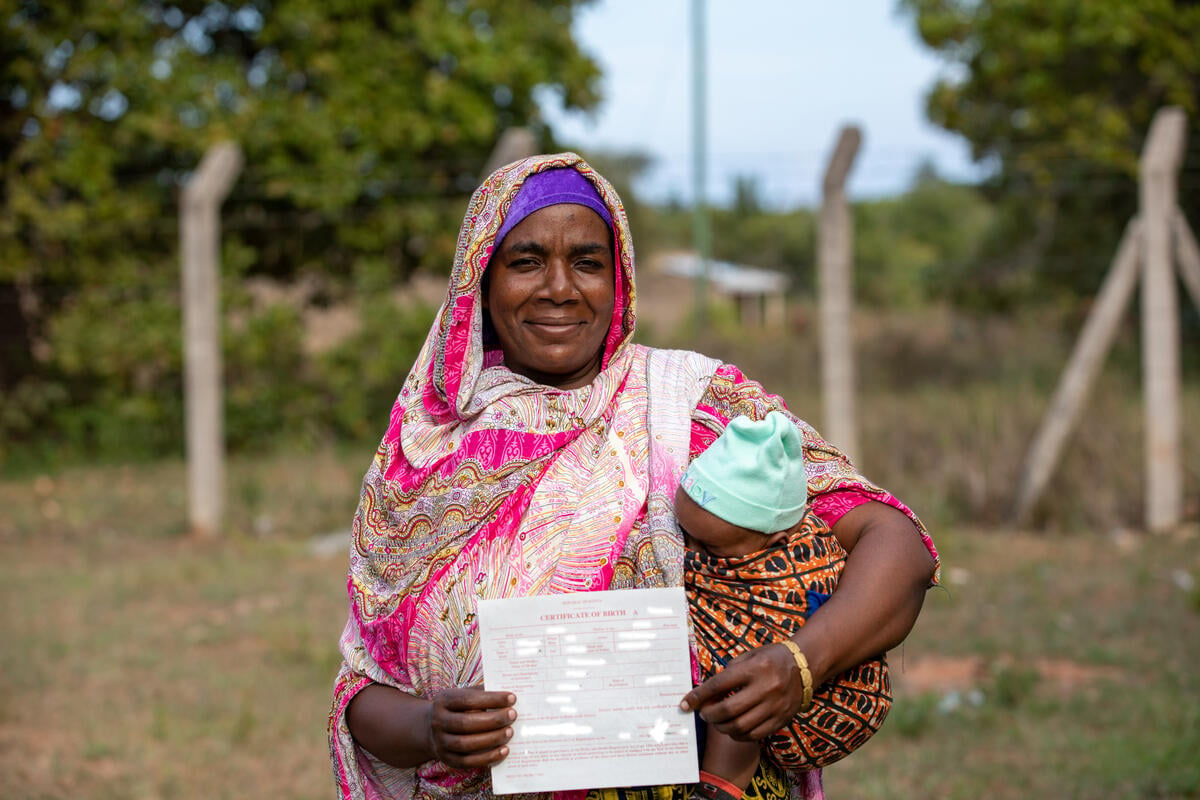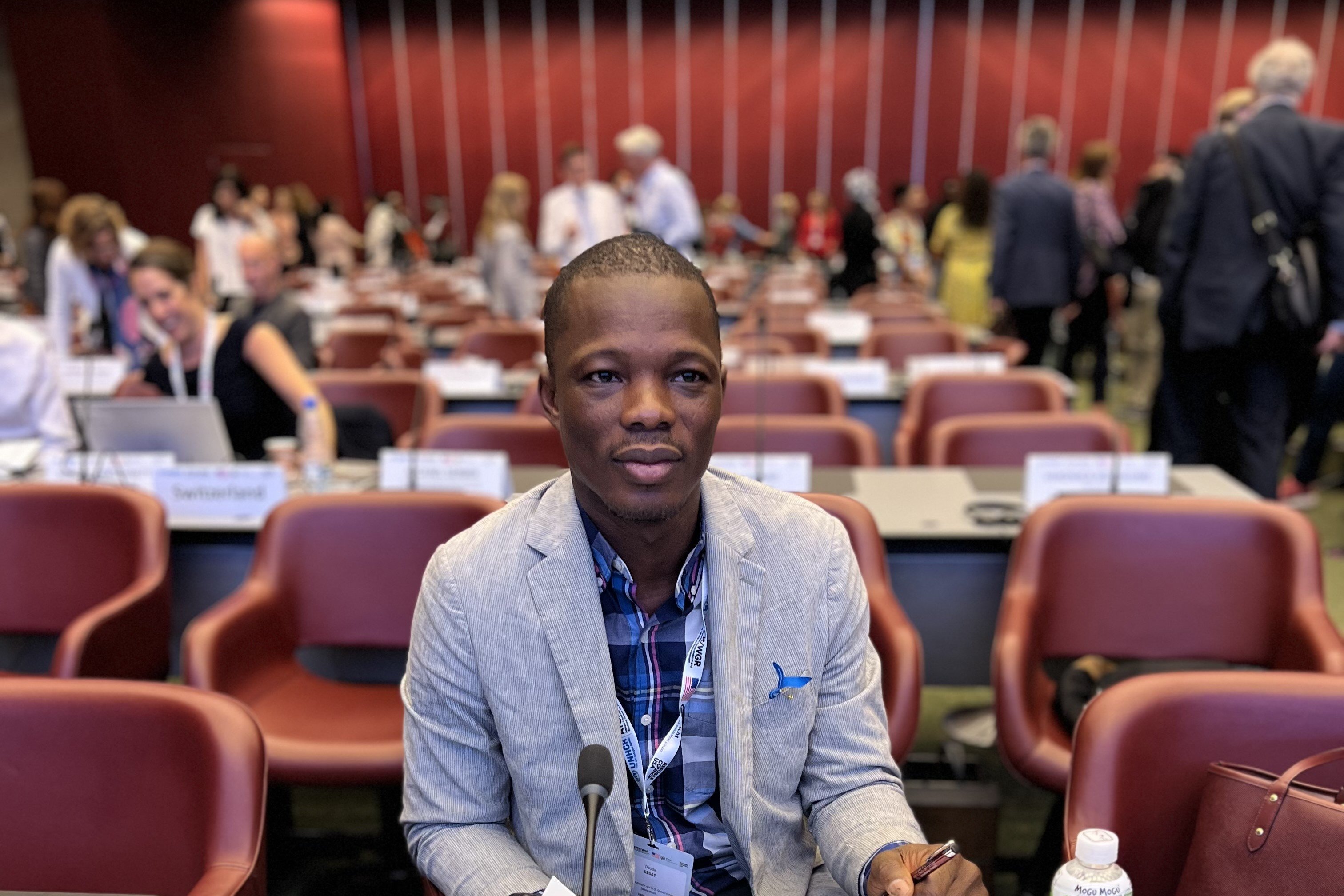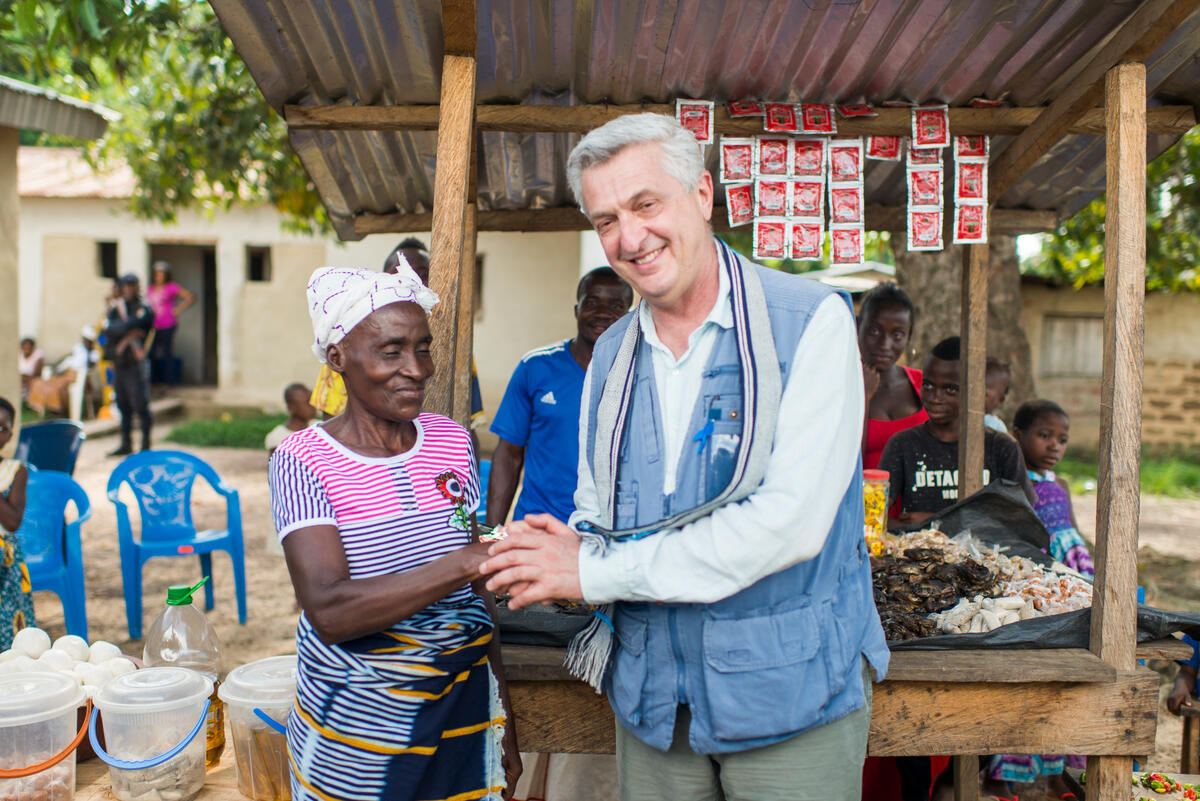UNHCR resumes sea returns from Liberia; repatriation on track in region
UNHCR resumes sea returns from Liberia; repatriation on track in region

FREETOWN, Sierra Leone, May 13 (UNHCR) - Hundreds of Sierra Leonean refugees in Liberia have gone home in recent days as the UN refugee agency resumes its sea repatriation programme. Returns from Guinea are also on track, raising hopes that most Sierra Leonean refugees can be repatriated from the region within a year.
On Tuesday, 147 Sierra Leonean refugees sailed into Queen Elizabeth Bay in Freetown after leaving the Liberian capital of Monrovia the day before. This follows the first convoy of 243 people who arrived back in Sierra Leone on Saturday after a 30-hour voyage from Monrovia.
The resumption of regular sea repatriation - with one trip scheduled every four days - is a departure from last year's irregular voyages that was dependent on the erratic security situation around Monrovia and on UNHCR's available financial resources.
As returns by sea increase - 800 people have so far signed up for repatriation - the costly air repatriation from Monrovia has now been suspended after more than 900 people had been brought back this way since February 28 as an emergency measure when fighting raged around the capital.
Pulling into Freetown's port on Saturday, Nasiko, a 16-year-old returnee, was overjoyed to be reunited with her brother who had returned from Liberia's VOA camp last year. Together they went back to Kenema district, where their home is currently under reconstruction. However, there will be no grand family reunion as the siblings are still separated from their parents. UNHCR and Save the Children are helping them trace their family.
Another returnee, Rosaline, was reunited with her husband and child who had returned by air a few months ago. She hopes to resume her nursing course as soon as possible, explaining, "I want to give assistance to my people like UNHCR did for me."
Once they arrive back in Sierra Leone, the returnees are given water and a meal, and briefed about entrance procedures. They spend their first night at the Jui transit centre near Freetown before travelling in convoys to their areas of origin. They also receive a package containing domestic items, a four-month food ration and a transport allowance. The main areas of return are Kenema, Kailahun and Pujehun districts in the east and south of the country.
Since 2001, close to 63,000 Sierra Leoneans have returned from Liberia, including 48,000 with UNHCR assistance. There are still some 16,000 Sierra Leonean refugees hosted in five UNHCR camps around Monrovia - their willingness to return often varies, depending on security developments around the Liberian capital.
Meanwhile in Guinea, UNHCR has helped 16,500 Sierra Leoneans go home so far this year - half of whom returned through the recently opened Parrot's Beak region, others through the Pamelap route in the west. In all, 160,000 Sierra Leoneans have returned home from Guinea since the end of 2000, some 70,000 of them with UNHCR assistance. An estimated 25,000 Sierra Leonean refugees remain in various camps in Guinea.
There are also more than 7,600 Sierra Leonean refugees in Gambia, close to 2,000 each in Ghana and Nigeria, as well as hundreds in each of the other West African countries like Senegal, Mali and Côte d'Ivoire.
The UN refugee agency expects to complete the Sierra Leonean repatriation from all countries in the region within the next year.









